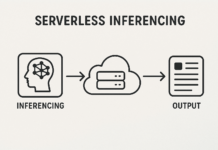GST have been the number one “game changer” in the entire history of India. Traders, manufacturers or service providers in India have been placed under the unified taxation system. Now, they no longer need to pay multiple taxes, however, the biggest challenge that most of the industries and businesses are facing is that the shift of input tax credits from previous taxation system to the new GST regime. The confusion is regarding the tax that has to be paid by the businesses either at the destination of supply of goods and services or the origin of such transportations. In order to make our country as “one nation one tax” the Government is taking measures to have a massive IT system and a team of expert officers who can collectively handle mammoth of GST data going to be uploaded by businesses every month.
Accounting professionals have a great opportunity to make their clients by offering them seamless migration of their businesses and handles their financing with the help of professional GST calculator according to the transformational shift. Also, try to keep their clients updated with the GST bill latest news. Despite of benefits and a whole lot of opportunities, five major challenges that accounting professionals have to face are discussed in this blog post. Let’s take a look.
1 . Lack of GST Awareness among Clients
Due to the lack of GST awareness among clients and various businesses, they are still confused in which state they need to get registered. In addition, they need to update their GST compliances and relevant functional departments including IT-systems, supply chain and legal. In order to be on the right side of the anti-profiteering clause of the GST regime, businesses need to upgrade their cost sheets involved in comparable analysis of goods and services.
2. Lack of Understanding on GST Provisions
Various GST rules and regulation are still unclear to many businesses and clients. Provisions related to anti-profiteering that takes care of e-way bill which tracks the consignment from one state to another is still unclear. GST require transporters for e-way bill generations on GST portal that includes the installation of radio frequency identification.
3. Unmapping of IT Systems with the New Tax Regime
There are several businesses that still needs mapping with the new accounting software required for the GST calculations, generation of GST invoices, keeping records of data and so on. Therefore, the accounting pro needs to look after whether their clients’ system is updated and have GST calculator and software to fulfil the requirements according to the new tax regime. There are millions of businesses be it small, medium or large that need to generate invoices every month for which they need to have efficient and reliable IT support.
4. Lack of Skilled Staff
As GST has been implemented recently, the staff of most businesses are unprepared. Due to the complexity of the new taxation regime, businesses need to train their employees and staff accordingly with updated subjective knowledge. The stress and expense to train the employees and staff is an additional headache for the businesses that they need to do to ensure swift implementation.
5. Maximum Returns to be Filed
Every business irrespective of small, medium or large need to file multiple returns, which increase multifold in accordance with business models. Clients need to ensure timely compliance by registered suppliers in order to make sure there is no loss of input tax credits. This eases the work and ensure the accurate GST returns.
Wrapping Up
Though GST Bill India aims to streamline businesses and take crucial steps to protect consumer interests, the legislation of India should not make rules and regulations that can impact industrial growth. GST is both opportunity and a challenge for the accounting professionals that are working to maintain the daily records of industries and businesses. Therefore, they need to update their knowledge regarding cloud, big data, analysis as well as the financial calculations.
























































